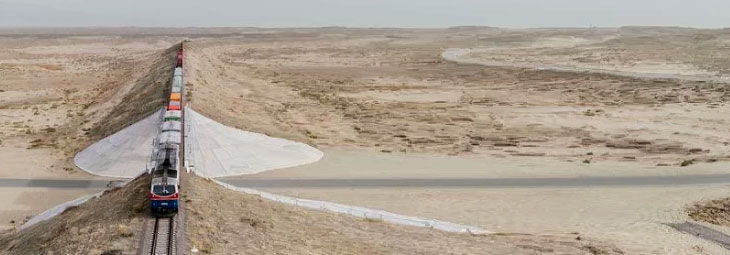


At the Asia and Pacific High-level Conference on Belt and Road Cooperation on June 23rd, 2021, Afghanistan, Bangladesh, Brunei, Cambodia, Chile, China, Colombia, Fiji, Indonesia, Kazakhstan, Kyrgyzstan, Laos, Malaysia, Maldives, Mongolia, Myanmar, Nepal, Pakistan, the Philippines, Saudi Arabia, Singapore, Solomon Islands, Sri Lanka, Tajikistan, Thailand, Turkmenistan, United Arab Emirates, Uzbekistan, and Viet Nam, jointly launched the initiative for Belt and Road Partnership on Green Development.
1. Reviewing the 2030 Agenda for Sustainable Development, the United Nations Framework Convention on Climate Change (UNFCCC) and the Paris Agreement adopted under the convention, we emphasize that there is but one Planet Earth and it is our shared responsibility to work towards ecological and environmental protection. All countries need to make concerted efforts to foster green, low-carbon and sustainable development.
2. We reaffirm that climate change is one of the major challenges for our world. All countries, particularly developing countries, are vulnerable to its adverse impacts. Climate change can be addressed through climate actions guided by the principle of equity and common but differentiated responsibilities and respective capabilities, in light of different national circumstances.
3. We call for internationally collaborative efforts to achieve green and sustainable recovery, and foster a low-carbon, resilient and inclusive post-pandemic growth.
4. We appreciate the progress made by relevant Belt and Road cooperation partners, on a voluntary basis, in building a green silk road, including the development of the Belt and Road Initiative International Green Development Coalition (BRIGC), and the formulation of the Green Investment Principles for Belt and Road (GIP).
5. We call upon Belt and Road cooperation partners to focus on the following:
- Continue the efforts towards achieving the goals set in the 2030 Agenda for Sustainable Development by fostering economic, social, and environmental development in a balanced and integrated manner.
- Support green and low-carbon development, including the implementation of the Paris Agreement and the sharing of best practices.
- Strengthen policy communication and coordination on green development to draw upon each other's experience and good practices, while respecting different national circumstances as well as legal and regulatory frameworks.
- Deepen environmental cooperation to step up ecological and water resources conservation efforts and to achieve harmony between Human and Nature for green and sustainable development.
- Promote environment-friendly and resilient infrastructure through, inter alia, enhancing climate and environmental risk assessment on projects, drawing upon internationally recognized standards and best practices, as well as advocating corporate social responsibilities in protecting the ecological environment.
- Promote development and utilization of clean energy as well as enhanced international cooperation on renewables, to ensure affordable and economically sustainable energy in developing countries.
- Encourage national and international financial institutions to provide adequate, predictable and sustainable financing for environment-friendly and low-carbon projects through development of effective financial instruments.
- Strengthen human and institutional capacity in implementing climate change adaptation and mitigation.
6. We look forward to the participation of more partners in this initiative.
Source:<https://www.fmprc.gov.cn/mfa_eng/wjdt_665385/2649_665393/t1886388.shtml>